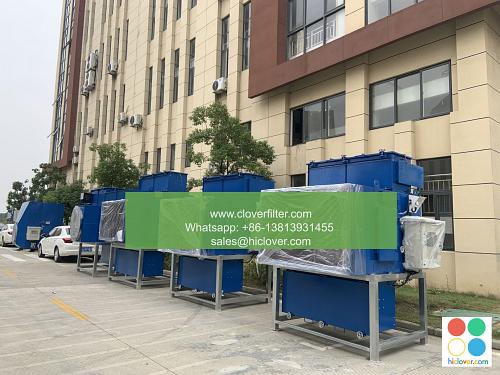Can Air Filter’s Policy Solve the Problem of Data Overload?

The concept of air filter’s policy can be metaphorically applied to the problem of data overload in the fields of big data analytics and artificial intelligence. In this article, we will explore how this policy can help alleviate the issue of information overload and improve the overall efficiency of data processing and machine learning algorithms.
Understanding Data Overload
Data overload refers to the situation where an organization or an individual is faced with an enormous amount of raw data that needs to be processed and analyzed. This can lead to information fatigue, making it difficult to extract valuable insights and patterns from the data. The Internet of Things (IoT), social media, and cloud computing have all contributed to the exponential growth of digital data, exacerbating the problem of data overload.
The Air Filter’s Policy Analogy
An air filter’s policy can be seen as a metaphor for data filtering and purification. Just as an air filter removes impurities and pollutants from the air, a data filter can remove noise and irrelevant data from the dataset. By applying this policy, organizations can streamline their data processing and analysis workflows, reducing the risk of information overload and improving the accuracy of their insights and predictions.
Application Areas
The air filter’s policy can be applied to various application areas, including:
* Big Data Analytics: By filtering out irrelevant data, organizations can reduce the complexity of their big data analytics workflows and improve the accuracy of their insights and predictions.
* Artificial Intelligence: AI and machine learning algorithms can benefit from the air filter’s policy by reducing the amount of noise and irrelevant data in the training datasets.
* IoT Data Management: The air filter’s policy can help organizations manage the vast amounts of IoT data generated by smart devices and sensors, reducing the risk of information overload and improving the efficiency of their data processing workflows.
* Cloud Computing: Cloud-based data storage and processing can benefit from the air filter’s policy by reducing the amount of data that needs to be stored and processed, resulting in cost savings and improved scalability.
Benefits and Challenges
The air filter’s policy can bring numerous benefits, including:
* Improved data quality
* Increased efficiency
* Enhanced accuracy
* Reduced costs
However, implementing the air filter’s policy can also pose challenges, such as:
* Data loss: The risk of losing valuable data during the filtering process.
* Complexity: The need for sophisticated data filtering and purification algorithms.
* Scalability: The need for scalable data processing and storage solutions.
Conclusion
In conclusion, the air filter’s policy can be an effective solution to the problem of data overload in big data analytics and artificial intelligence. By applying this policy, organizations can improve the quality of their data, increase the efficiency of their data processing workflows, and enhance the accuracy of their insights and predictions. However, implementing this policy requires careful consideration of the potential challenges and limitations, as well as the development of sophisticated data filtering and purification algorithms. It seems like you didn’t provide a prompt for me to respond to. Could you please provide more details or ask a specific question? I’m here to help with any topic or query you might have.

